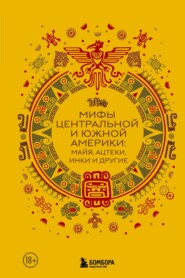По всем вопросам обращайтесь на: info@litportal.ru
(©) 2003-2025.
✖
Funny stories / Сборник лучших смешных рассказов. Уровень 2
Настройки чтения
Размер шрифта
Высота строк
Поля
11. Выберите нужные глаголы:
Fat men, between paroxysms of coughing, ____________________ you of the goals they ____________________ when they were extraordinary forwards.
1. told, score
2. tell, score
3. had told, scored
4. tell, scored
ОТВЕТ: tell, scored
12. Выберите нужный предлог:
He makes a life-long labour ____________________ his sport, and to it sacrifices mind and body.
1. by
2. at
3. of
4. with
ОТВЕТ: of
13. Ответьте на вопросы:
1. Who tells the story?
2. What is the name of the famous French writer mentioned in the story?
3. What have you learned about golf?
4. What do you like and what don’t you like in golf?
5. What would you do if you were playing golf?
6. What is the end of the story?
7. How can you explain the title of the story?
8. Retell the story.
14. Заполните таблицу:
hear ____________________ ____________________
____________________ went ____________________
____________________ ____________________ done
meet ____________________ ____________________
____________________ gave ____________________
ОТВЕТ:
hear-heard-heard
go-went-gone
do-did-done
meet-met-met
give-gave-given
Should we say what we think, or think what we say?
Jerome K. Jerome
A mad friend of mine says that the main word of the age is Make-Believe[28 - Make-Believe – притворство]. He claims that all social intercourse is founded on make-believe. A servant enters to say that Mr. and Mrs. Bore are in the living-room.
“Oh, damn!” says the man.
“Hush!” says the woman. “Shut the door, Susan[29 - Susan – Сюзен]. How often am I to tell you never to leave the door open?”
The man creeps upstairs on tiptoe and enters his study room. The woman tries not to show her feelings, and then enters the living-room with a smile. She looks as if an angel has arrived. She says how delighted she is to see the Bores-how good it was of them to come. Why did they not bring more Bores with them? Where is naughty Bore junior? Why does he never come to see her now? She will have to be really angry with him. And sweet little Flossie[30 - Flossie – Флосси] Bore? Too young to visit friends! Nonsense.
The Bores, who had hoped that she was not at home-who have only come because the etiquette book told them that they had to come at least four times in the season, explain how they have been trying and trying to come.
“This afternoon,” says Mrs. Bore, “we decided to come for sure. ‘John, dear,’ I said this morning, ‘I shall go and see dear Mrs. Bounder this afternoon, no matter what happens.’”
It looks like the Prince of Wales[31 - the Prince of Wales – принц Уэльский], who wanted to visit the Bores, was told that he could not come in. He might call again in the evening or come some other day.
That afternoon the Bores were going to enjoy themselves in their own way[32 - to enjoy themselves in their own way – провести время по своему вкусу]; they were going to see Mrs. Bounder.
“And how is Mr. Bounder?” asks Mrs. Bore.
Mrs. Bounder remains mute for a moment. She can hear how he goes downstairs. She hears how the front door softly opens and closes.
And thus it is, not only with the Bores and Bounders, but even with us who are not Bores or Bounders. Any society is founded on the make-believe that everybody is charming; that we are delighted to see everybody; that everybody is delighted to see us; that it is so good of everybody to come; that we are desolate at the thought that they really must go now.
What will we prefer-to stop and finish our cigar or to hasten into the living-room to hear Miss Screecher’s songs? Miss Screecher does not want to sing; but if we insist-We do insist. Miss Screecher consents. We are trying not to look at one another. We sit and examine the ceiling. Miss Screecher finishes, and rises.
“But it was so short,” we say. Is Miss Screecher sure that was the end? Didn’t she miss a verse? Miss Screecher assures us that the fault is the composer’s[33 - the fault is the composer’s – в этом вина композитора]. But she knows another. So our faces lighten again with gladness.
Fat men, between paroxysms of coughing, ____________________ you of the goals they ____________________ when they were extraordinary forwards.
1. told, score
2. tell, score
3. had told, scored
4. tell, scored
ОТВЕТ: tell, scored
12. Выберите нужный предлог:
He makes a life-long labour ____________________ his sport, and to it sacrifices mind and body.
1. by
2. at
3. of
4. with
ОТВЕТ: of
13. Ответьте на вопросы:
1. Who tells the story?
2. What is the name of the famous French writer mentioned in the story?
3. What have you learned about golf?
4. What do you like and what don’t you like in golf?
5. What would you do if you were playing golf?
6. What is the end of the story?
7. How can you explain the title of the story?
8. Retell the story.
14. Заполните таблицу:
hear ____________________ ____________________
____________________ went ____________________
____________________ ____________________ done
meet ____________________ ____________________
____________________ gave ____________________
ОТВЕТ:
hear-heard-heard
go-went-gone
do-did-done
meet-met-met
give-gave-given
Should we say what we think, or think what we say?
Jerome K. Jerome
A mad friend of mine says that the main word of the age is Make-Believe[28 - Make-Believe – притворство]. He claims that all social intercourse is founded on make-believe. A servant enters to say that Mr. and Mrs. Bore are in the living-room.
“Oh, damn!” says the man.
“Hush!” says the woman. “Shut the door, Susan[29 - Susan – Сюзен]. How often am I to tell you never to leave the door open?”
The man creeps upstairs on tiptoe and enters his study room. The woman tries not to show her feelings, and then enters the living-room with a smile. She looks as if an angel has arrived. She says how delighted she is to see the Bores-how good it was of them to come. Why did they not bring more Bores with them? Where is naughty Bore junior? Why does he never come to see her now? She will have to be really angry with him. And sweet little Flossie[30 - Flossie – Флосси] Bore? Too young to visit friends! Nonsense.
The Bores, who had hoped that she was not at home-who have only come because the etiquette book told them that they had to come at least four times in the season, explain how they have been trying and trying to come.
“This afternoon,” says Mrs. Bore, “we decided to come for sure. ‘John, dear,’ I said this morning, ‘I shall go and see dear Mrs. Bounder this afternoon, no matter what happens.’”
It looks like the Prince of Wales[31 - the Prince of Wales – принц Уэльский], who wanted to visit the Bores, was told that he could not come in. He might call again in the evening or come some other day.
That afternoon the Bores were going to enjoy themselves in their own way[32 - to enjoy themselves in their own way – провести время по своему вкусу]; they were going to see Mrs. Bounder.
“And how is Mr. Bounder?” asks Mrs. Bore.
Mrs. Bounder remains mute for a moment. She can hear how he goes downstairs. She hears how the front door softly opens and closes.
And thus it is, not only with the Bores and Bounders, but even with us who are not Bores or Bounders. Any society is founded on the make-believe that everybody is charming; that we are delighted to see everybody; that everybody is delighted to see us; that it is so good of everybody to come; that we are desolate at the thought that they really must go now.
What will we prefer-to stop and finish our cigar or to hasten into the living-room to hear Miss Screecher’s songs? Miss Screecher does not want to sing; but if we insist-We do insist. Miss Screecher consents. We are trying not to look at one another. We sit and examine the ceiling. Miss Screecher finishes, and rises.
“But it was so short,” we say. Is Miss Screecher sure that was the end? Didn’t she miss a verse? Miss Screecher assures us that the fault is the composer’s[33 - the fault is the composer’s – в этом вина композитора]. But she knows another. So our faces lighten again with gladness.

















